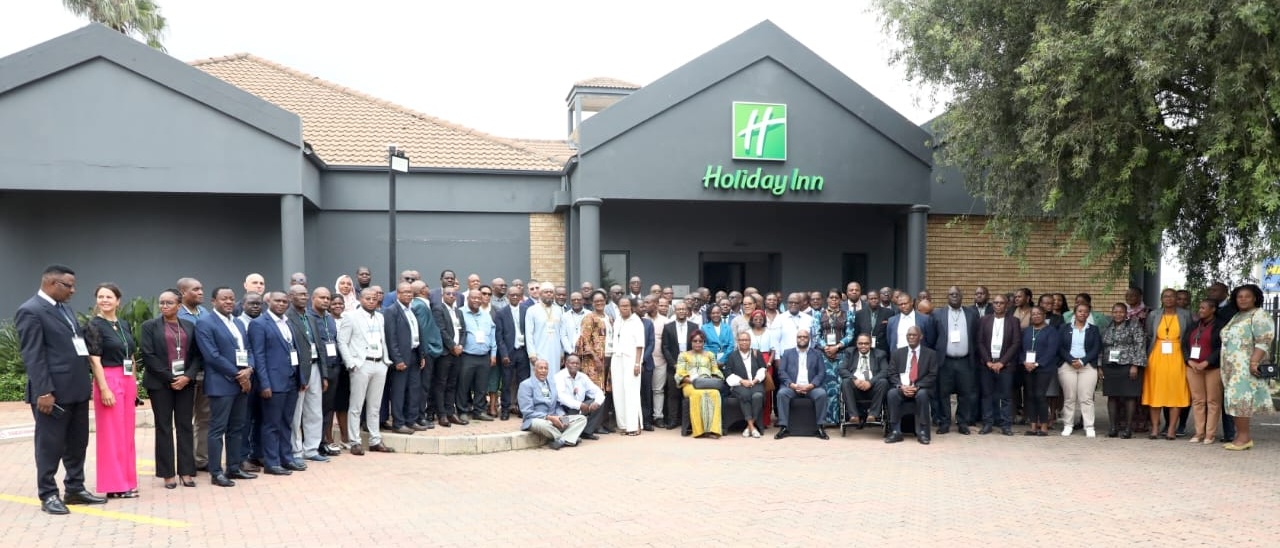Member States from the Southern African Development Community (SADC) have taken a landmark step towards safeguarding the future of the region’s agricultural sector with the official validation of the proposal for the Southern Africa Soil Health and Fertilizer Hub and Programme. This initiative—previously endorsed by the African Union (AU)—aims to combat soil degradation, optimize fertilizer use, and promote sustainable farming practices across the region.
The high-level validation workshop, held from March 18-21, 2025, in Johannesburg, South Africa, brought together agricultural experts, policymakers, researchers, and development partners. Discussions focused on agroecological re-zoning, soil mapping, and a regional roadmap for sustainable soil health management.
Strengthening Southern Africa’s Agricultural Foundations
Soil degradation remains one of the greatest threats to food security and economic stability in Southern Africa. With one-third of the SADC population living in drought-prone areas and over 65% of arable land degraded, urgent intervention is necessary.
Speaking at the workshop, Prof. Cliff Dlamini, CCARDESA Executive Director and Head of Mission, underscored the critical role of soil health in sustainable agriculture and economic resilience:
“Soil is the foundation of life. Without healthy soils, we cannot have productive farms, strong economies, or resilient communities. This Hub is not just a policy framework—it is a transformative initiative that will provide practical, science-based solutions to restore soil fertility and ensure that future generations inherit productive lands.”
The Southern Africa Soil Health and Fertilizer Hub aligns with the Southern Africa Fertilizer and Soil Health Programme, which prioritizes sustainable soil management as a key driver of agricultural growth.
A United Commitment to Action
Stakeholders emphasized the importance of knowledge-sharing, research collaboration, and policy harmonization to improve soil health and increase fertilizer efficiency across the region.
Mr Washington Mubvekeri, Director for Crop Research in Zimbabwe’s Ministry of Lands, Agriculture, Fisheries, Water, and Rural Development, speaking as SADC Chair, highlighted the economic and social costs of soil degradation:
“When soil health declines, agricultural productivity declines, and our economies suffer. This Hub will serve as a center of excellence where experts, policymakers, and stakeholders collaborate to reverse soil degradation trends.”
Meanwhile, Mr Duncan Samikwa, representing the SADC Secretariat, emphasized the hub’s role in shaping long-term strategies for soil restoration:
“The establishment of the Regional Soil Health and Fertilizer Hub is a crucial milestone in our collective fight against soil degradation. Sustainable agriculture depends on healthy soils, and this initiative will guide policies and strategies to ensure that future generations inherit productive lands.”
The Role of Research, Innovation, and Partnerships
A key function of the hub is to facilitate and coordinate research, policy harmonization, and provide technical support across SADC Member States.
Dr Frank Kayula, CCARDESA Board Member representing regional smallholder farmers, stressed that multi-sector collaboration is essential for success:
“This is a result of the concerted efforts of governments, research institutions, the private sector, and development organizations. The hub will act as a knowledge-sharing platform, driving innovation and best practices in soil health and fertilizer use.”
Moving from Strategy to Implementation
With the validation of the proposal, stakeholders are now shifting focus from planning to execution. Mr Ramakgwale Mampholo, Regional Managrer at South Africa’s National Department of Agriculture, urged all parties to commit to tangible actions:
“We are not here just to discuss ideas—we are here to take action. This hub will ensure that policies translate into real, measurable improvements in soil health and agricultural productivity.”
Next Steps & Future Outlook
The immediate next steps include:
- Finalizing the hub’s implementation framework;
- Mobilizing resources and funding; and
- Establishing operational guidelines for sustainability.
With strong regional support and commitment from key agricultural stakeholders, the Southern Africa Soil Health and Fertilizer Hub is poised to dive meaningful changes in soil management, ultimately enhancing food security, economic resilience, and sustainable agricultural growth across the region.






